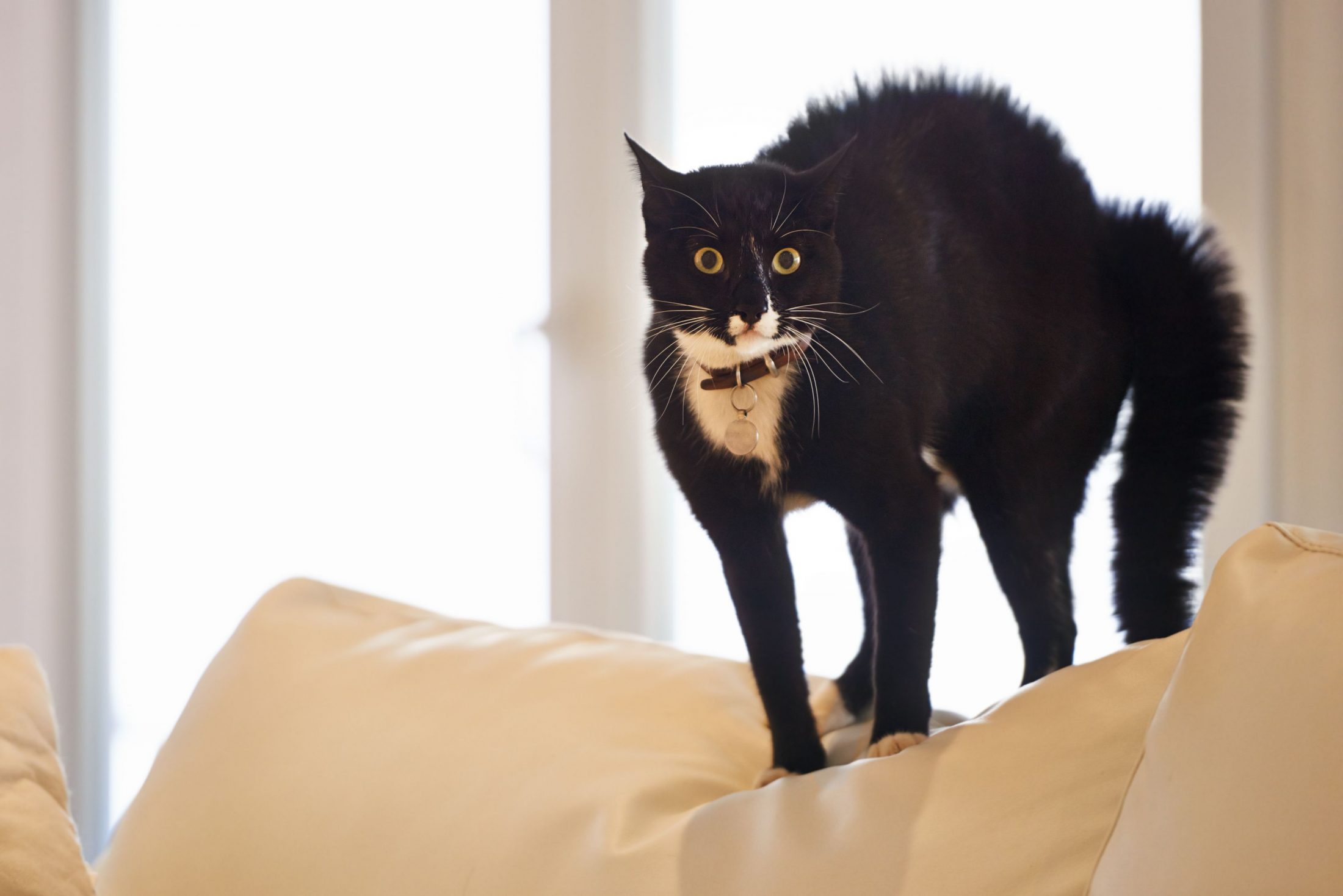
How do you know if you’ve got a scaredy cat or an anxious cat? Well, a shy cat may just have a shy personality. Cat anxiety can often sneakily creep up or show up out of nowhere, but there are common symptoms you can recognize! Your team at Summeridge Animal Clinic is here to shed light on keeping your cat healthy, happy, and stress-free!
Spotting the Signs
Firstly, it’s important to note what behaviors make you think of your cat as anxious. What is sticking out to you? While it’s a slippery slope to compare our pets to ourselves too much, one useful way to look at this is to consider that if someone has anxiety, it might manifest in a variety of ways. The same is true for cats. Some questions to ask:
- Is your cat hiding?
- Is your cat marking?
- Is your cat no longer going in their litter box?
- What about aggression? Are they scratching or biting?
- Do they run from you?
- Do they no longer enjoy being pet?
We all know that cats do not speak up when they’re in pain (well, sometimes yowling can indicate pain). What many people do not know is that cats evolved to hide illness. In the wild, by not displaying any outward signs of injury, they had a better chance of not being eaten by predators. Now that most cats live in the great indoors, we have to pay extra close attention to subtle signs that things may not be okay.
A variety of medical issues can cause symptoms of cat anxiety. With a thorough physical vaccination, plus any tests we may recommend, we can help rule out if illness or pain is to blame for cat anxiety. We’ll need to work with you as a team to evaluate if there may be any environmental factors, goings-on at home, that could be contributing to your cat’s anxious behavior.
How to Help
Cats respond best to routine and predictability. If we discover together that your cat is showing signs of anxiety that aren’t related to a physical problem, we’ll need to look at what potential triggers might be at play. If there have been any recent changes in your home, your cat may feel destabilized and uncertain about whether life will be the same tomorrow.
This may sound dramatic, but something as simple as having guests over could translate as “sometimes strange-smelling intruders enter the house.” We’re not implying you have stinky friends! Unfamiliar odors from newcomers or unfamiliar sounds from a new vacuum could make a cat anxious. If you have a scaredy cat, just remember:
- Never punish your cat for their anxious behavior because this could make it worse
- Maintain scheduled feeding times (set a reminder for yourself)
- Place their litter box away from any eating or sleeping areas
- Set one litter box on each floor of the house
- Have multiple litter boxes for multiple cats, and don’t move them
- Provide appropriate toys for scratching and places to hide
- Include enrichment activities during their day
Last tip, give us a call at (905) 731‑1225 for any questions or to schedule your next wellness exam!



